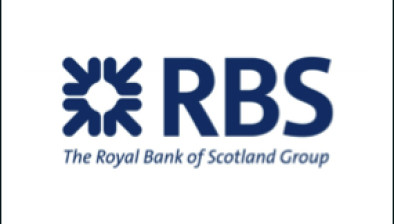RBS: Scottish labour market ‘remained challenging’ in August
The Scottish labour market ‘remained challenging’ in August as permanent placements and temp billings continued to fall, according to the latest Royal Bank of Scotland report on jobs.

The data has revealed that permanent staff appointments declined at the slowest rate since February, while the latest reduction in temp billings was the softest since December 2019 and only marginal.
Amid reports of redundancies, staff availability continued to expand rapidly over the same period. Combined with muted demand for staff, starting rates of pay dropped further for both permanent and temporary workers.
The decline in permanent placements extends the current sequence of reduction to seven months. Anecdotal evidence linked the latest decline to the COVID-19 pandemic and ongoing public health measures. That said, the rate of contraction continued to soften and, though solid, was the slowest since February.
Recruiters across Scotland signalled a ninth successive monthly reduction in billings received from the employment of temporary workers during August. The rate of decline eased for the fourth month running to the softest since December 2019, however, and was only modest. Although there were further mentions of negative impacts stemming from the coronavirus pandemic, several panellists noted that billings had increased in some sectors.
The trend between Scotland and the UK diverged in August, as temp billings rose sharply at the national level.
August data highlighted a further increase in the supply of permanent candidates across Scotland, extending the current sequence of expansion to three months. Moreover, the latest upturn was the most marked since the height of the global financial crisis in early-2009. According to respondents, widespread redundancies amid the COVID-19 pandemic had led to a substantial rise in the number of available candidates.
As has been the case in each month since April, the seasonally adjusted Temporary Candidate Availability index registered above the neutral 50.0 mark in August to signal an increase in the supply of temporary staff in Scotland. Once again, panellists frequently linked the uptick to a greater number of job seekers as a result of the COVID-19 pandemic. The rate of increase remained rapid, despite easing from July’s recent record.
Recruiters in Scotland signalled a reduction in average salaries awarded to permanent new joiners in August, extending the current sequence of decline which began in April. The latest fall in salaries was the softest in the current sequence but remained marked overall.
A fifth consecutive monthly reduction in average hourly rates of pay for short-term staff in Scotland was recorded during August. Though solid, the rate of decline was the slowest seen since March.
Adjusted for seasonal factors, the Permanent Vacancies Index posted below the neutral 50.0 threshold during August, to signal a further reduction in demand for permanent staff across Scotland. The index rose further from April’s nadir to indicate the softest rate of decline for five months, albeit one that was still marked overall.
Recruiters across Scotland signalled a sixth consecutive monthly reduction in the number of temporary vacancies during August. The rate of contraction was solid overall, albeit the slowest seen since March.
Sebastian Burnside, chief economist at RBS, said: “Conditions across the Scottish labour market remained challenging in August, with recruiters signalling further reductions in permanent placements and temporary billings. That said, the rates of decline eased further, with permanent appointments falling at the softest pace since February, while the reduction in temp billings was only marginal.
“Meanwhile, redundancies were again linked to a substantial increase in candidate availability. The supply of permanent staff rose at the quickest pace since April 2009, whilst temp candidate availability also increased markedly. With demand and supply imbalances ongoing, there was further downwards pressure on pay.
“Overall, the data is encouraging in the context of the unprecedented drops in hiring activity recorded in April through to June but the labour market is yet to begin its recovery, and may require further support measures in order to fully recovery from the effects of the pandemic.”










